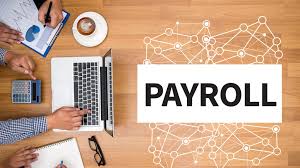Common Payroll Mistakes That Small Businesses Make All Too Often
Achieving a high level of payroll performance isn’t easy – but simple errors could be making your job harder than it needs to be…
Although it takes place behind the scenes, every good business owner knows that payroll is integral to their operation. Unfortunately, that also means any problems in the process, however minor, can affect almost every level of a business. Although fundamentally concerned with paying employees on time, payroll is also about navigating the labyrinth of detailed legal regulations that come with calculating employees’ tax and social security contributions – and avoiding costly penalties for non-compliance.
Recent research showed that payroll mistakes cost UK employers over £700 million in the 2015/16 financial year – the combined result of fines collected by HMRC. Beyond the damage of financial penalties however, payroll mistakes also chip away at the confidence of both employees and clients – and quickly erode a business’ reputation within its professional community.
The common mistakes…
The good news is most common payroll mistakes can be handled, mitigated or avoided through a combination of employee training, and forward planning. To help you get to grips with the challenges your organisation might be facing, why not check out this list of simple mistakes that affect small business’ payroll departments…
Payroll size
When you build your payroll department, it’s important to think carefully about the job you need it to do. Too many small businesses miscalculate at this stage and create a payroll which doesn’t fit their business needs – either too large to be cost effective, or too small to manage the administrative burden placed upon it. While this error may not have immediate effects, problems will inevitably emerge down the line in the event of an unexpected payroll delay or compliance challenge – when it’s much harder to make adjustments.
Numerous factors are important here, including your business’ commercial sector, your location, number of employees, average work hours, and more. Ultimately, the information you gather about your prospective payroll’s shape and size will help you make ongoing decisions about the number of administrators you hire, the type of software they use, and what kind of training they need.
Observing deadlines
One of the most basic duties of a payroll department is to meet a number of important dates and deadlines on the tax calendar. Don’t neglect these tax basics: from understanding when the tax year starts and ends, to meeting remittance deadlines, every member of your payroll team should know what needs to happen, and when – or risk incurring compliance penalties.
Ensuring employees are familiar with the tax landscape isn’t difficult – and could be as simple as marking important dates on a shared calendar at the start of every tax year. Similarly, payroll employees should understand how to communicate with, and report to, the relevant authorities they’ll be dealing with in their role as administrators.

Failing to automate
Putting this one right on top of the list makes sense because poor systems and controls are the root cause of most of the other payroll mistakes listed below. If you don’t have an automated system in place, you can easily make errors in calculating employee salaries and deductions, and in recording employee information and transactional data.
Failing to automate also means the payroll team spends most of its time on compliance and admin issues, when it should ideally be focusing on helping the business understand payroll costs, identify trends, enable better employee experiences, and provide strategic advice to finance and management teams.
Not putting checks and balances in place
Payroll fraud is a major risk for businesses today and is often discovered by accident, only after the company has lost a vast amount of money. Many small- and medium-sized businesses are vulnerable to payroll fraud because they don’t put appropriate checks in place. For example, they often give one accountant or payroll manager complete access to the payroll system and company bank account.
The simplest way to prevent most incidents of payroll fraud is to enforce segregation of duties in the payroll department. Employees calculating pay rates and accumulated hours for payroll should ideally not be the same people who process the payments. Different people should have responsibility for capturing payroll data and for managing access to the system as well as adding and removing employees from the payroll. Yet another person could be tasked with checking whether the numbers add up.

Not Maintaining Data Integrity
In the immortal words of bookkeeper and Knit customer Sherri Lee-Mathers, “if you put garbage in, you’re going to get garbage out.” By this she means that the kind of data you input into your new payroll system will influence what you get out. If the data is inaccurate from the start, it may become embedded in the system, and result in significant errors over time.
In order to avoid the dreaded “garbage in, garbage out” scenario, it’s important to prepare your data well in advance. Prior to making the switch, take the time to:
- Audit your current data—all of it.
- Cleanse your data of anything you might not need anymore (keeping in mind that the CRA requires you to “keep all required records and supporting documents for a period of six years from the end of the last tax year they relate to”).
- Identify any missing payroll fields.
- Request any important documents from your current provider, such as copies of all Payroll Register Reports and copies of pay stubs for all employees, so you have a complete set of records for each employee.
While it may seem like a time-consuming process, taking the time to check for any inaccuracies or inconsistencies upfront will save you from countless errors down the line.
Not Customizing the Platform
For those unfamiliar with payroll or used to doing things manually, payroll software may seem like a kind of “one-size-fits-all” solution. As a result, many payroll administrators sometimes stick to the default settings on their new platform. This often means that things are running less efficiently than they could be and that the company is not enjoying the full benefits of the software.
In reality, many of today’s cloud-based payroll systems are extremely flexible and can be configured to fit your company’s exact needs. Whether that means adding custom income types or running off-cycle payrolls, many platforms can be adjusted to your exact specifications. Therefore, when implementing a new payroll software, it can be beneficial to customize the platform upfront.

Misclassified Employees
The Problem
Companies often don’t realize that not everyone who works for them is actually considered an employee. If you hire independent contractors, temporary employees, or freelancers, they are not treated the same as employees when it comes to payroll.
In addition to determining their eligibility for benefits, the distinction dictates whether federal income and employment taxes are withheld. It also determines if you need to use a W-2 (for employees) or a 1099 (for non-employees) when reporting to the IRS.
Misclassifying an employee can result in costly fines and other administrative headaches.
The Solution
Any time you’re hiring someone, make sure you understand exactly how they’ll work within your organization according to the IRS’s standards.
The IRS has resources available to help determine if a worker is an employee or an independent contractor. Also, if you know you’ve made a mistake, you can see if you qualify for the Voluntary Classification Settlement Program—but keep in mind that there will still be penalties.
Overtime calculation flaws
Overtime calculations are the primary components in several payroll disputes. The average work hours permitted and the number of hours taken into account for overtime could be the crux of the dispute.
According to the Periodic Labour Force Survey of 2017-18, conducted by the National Statistics Office, most of the employees in the country work more than 48 hours per week.
How to avoid
Knowing the current overtime laws and adding the overtime bonus in the pay, on time, would avoid problems. This is another place where having an outsourced team for payroll management can solve your concerns.
You need up-to-date information about any amendments that the Labour and Employment ministry brings. The payroll team pays undivided attention to all these aspects to help secure your organization from legal issues.

